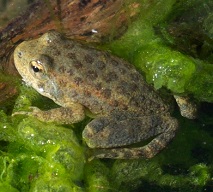California law (Fish and Game Code section 1602) requires an entity to notify CDFW prior to commencing any activity that may:
- Substantially divert or obstruct the natural flow of any river, stream, or lake;
- Substantially change or use any material from the bed, channel, or bank of any river, stream, or lake; or
- Deposit or dispose of debris, waste, or other materials containing crumbled, flaked, or ground pavement where it may pass into any river, stream, or lake.
The notification requirement applies to any river, stream, or lake, including those that are dry for periods of time (ephemeral/episodic) as well as those that flow year round (perennial). This includes ephemeral streams, desert washes, and watercourses with a subsurface flow.
If you are not certain that your proposed activity requires notification, CDFW recommends that you notify or consult with the CDFW regional office serving your project area.
Yes, there is a notification fee that must be received before CDFW will process your notification.
Effective September 1, 2021, all notifications for Gravel, Sand, or Rock Extraction, Routine Maintenance, and Timber Harvesting may be submitted through the EPIMS Permitting Portal.
While all notifications for Standard Agreement must be submitted through EPIMS Permitting Portal.
For all other LSA Agreement types, you must either submit a complete notification form and fee to the CDFW regional office that serves the county where the activity will occur, or submit a completed paper notification (i.e., PDF) through the EPIMS Document Repository. The LSA notification form, instructions, and fee schedule are available online and at CDFW regional offices.
CDFW Determines Whether Notification Is Complete
CDFW will make this determination within 30 calendar days of receiving your notification when you are requesting an Agreement with a term of five years or less. The 30 day timeline does not apply to notifications requesting a long-term Agreement (term of greater than five years) or to the General Agreement for Activities Related to Cannabis Cultivation (General Agreement).
If CDFW determines that the notification is incomplete, CDFW will contact you and specify the information you must provide to make it complete. CDFW will not process your notification until it receives the requested information.
CDFW Determines Whether Notification is Required
CDFW will determine if the project described in the notification will substantially alter a river, stream, or lake. If CDFW determines that the project will not, CDFW will provide written verification and refund the notification fee.
CDFW Determines Whether An Agreement Is Required
CDFW requires an LSA Agreement when it determines that the activity, as described in an LSA notification, will substantially alter a river, stream, or lake, and may substantially adversely affect existing fish or wildlife resources. CDFW may contact you to conduct an onsite inspection before drafting a Lake or Streambed Alteration Agreement. CDFW may suggest ways to modify your project that would eliminate or reduce harmful impacts to fish and wildlife resources.
Before issuing an LSA Agreement, CDFW must comply with the California Environmental Quality Act (CEQA).
An LSA Agreement is a type of permit that includes measures necessary to protect existing fish and wildlife resources. Common activities that are permitted by LSA Agreements include installation, repair, or maintenance of water diversions, culverts, stream crossings (e.g., bridges, rock fords), or any other modification of a lake or stream's bed, bank, or channel including extraction of material from them (i.e., sand, rock, or gravel) or deposition of material into them.
CDFW requires an LSA Agreement when it determines that the activity, as described in a complete LSA Notification, may substantially adversely affect existing fish or wildlife resources.
The California Endangered Species Act (CESA) prohibits the take of any species of wildlife designated as endangered, threatened, or candidate species. CDFW may authorize take of any such species if certain conditions are met. 
A Lake or Streambed Alteration Agreement does not provide CESA take authorization. If your project may result in take of a state listed species, a separate CESA permit may be required. If a species is protected under the federal Endangered Species Act, you will need to contact the U.S. Fish and Wildlife Service.
A project/work is considered an emergency if:
- The work is necessary to protect life or property;
- Immediate repairs to public service facilities are necessary to maintain service as a result of a disaster in an area in which the Governor has proclaimed a state of emergency; or
- The project is undertaken, carried out, or approved by a state or local governmental agency to maintain, repair, or restore an existing highway, within the existing right-of-way of the highway, that has been damaged as a result of fire, flood, storm, earthquake, land subsidence, gradual earth movement, or landslide, within one year of the damage.
You must notify CDFW in writing within 14 days of beginning emergency project/work. Notify CDFW through the EPIMS Permitting Portal.
The California Environmental Quality Act (CEQA) applies to all discretionary projects to be conducted or approved by a California public agency, including LSA Agreements. Before issuing an LSA Agreement, CDFW must comply with CEQA.
CDFW imposes and collects a filing fee to defray the costs of managing and protecting California’s vast fish and wildlife resources, including, but not limited to consulting with other public agencies, reviewing environmental documents, recommending mitigation measures, and developing monitoring programs (Fish & G. Code, § 711.4). The filing fee will be waived, however, if CDFW determines the project will have no effect on fish and wildlife and issues a “No Effect Determination.”